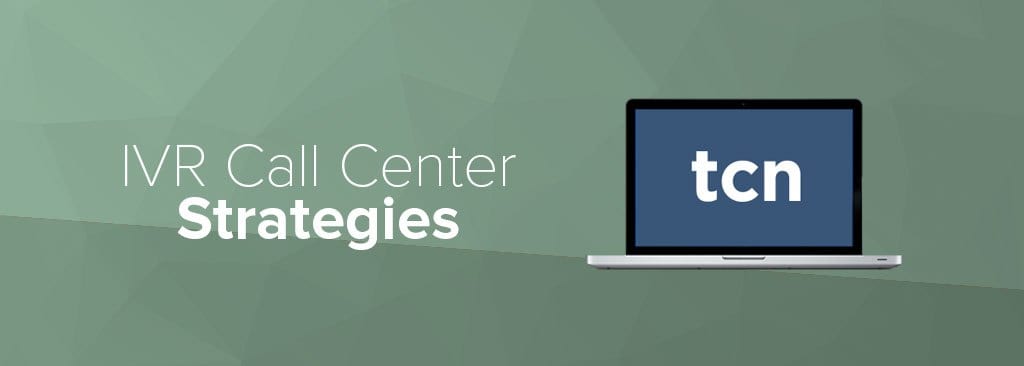4 IVR Call Center Strategies for Painless, Efficient Customer Service
Interactive voice response (IVR) is usually a call center’s first contact point with a customer.
Which is good, because according to Steven Van Belleghem, 40% of customers prefer self-service over interacting with human agents.
Not only that, but customers using some sort of self-service to solve their problems has increased from 67% in 2012 to 76% in 2014, according to Forrester.
This all makes sense if you understand that 68% of call center communications come from phone calls.
But simply installing an IVR isn’t enough to provide customers with good service. Businesses need to structure their IVR to maximize the customer experience.
To do that, they should consider implementing specific IVR call center strategies. Read on to discover what type of strategies to implement and why they’re so useful.
4 IVR Call Center Strategies
There are a number of ways to route an incoming call once it reaches a call center. Below, we cover 4 of the top strategies for routing calls using IVR.
1. Route the Call to the Agent Who Is Least Occupied
If agents in a call center have roughly the same skill sets and work experience, then routing calls to agents who are least occupied is the easiest way to direct call traffic.
Some call centers want to make sure that each agent receives roughly the same amount of calls in a given day. So you could also route calls to agents with the fewest calls answered, giving busier agents a break.
This strategy helps maintain an even and fair workload for all agents.
2. Route the Call Directly to a Department
If businesses have many departments, then their IVR call center technology can direct callers to the department that is able to help them best.
For example, if a caller has an IT question, the IVR can route them to the IT department.
Businesses may also prefer to list different numbers for different departments to avoid having all call traffic go to a single number and IVR system.
This makes sure that customers talk to the agent who has the right kind of information to answer their questions.
3. Route the Call to the Right Agent Based on Caller ID and Customer Information
To provide customers with the best service, it pays to know as much about the customer as possible ahead of time.
With the right inbound call center solution, businesses can record customer calls, past answers to queries, and any other information relevant to the customer.
So once a call comes in, their caller ID is displayed with all their info.
If the incoming call is from a new customer, we can assume the service department will best serve their needs.
If the incoming call is from an existing customer whose contract is close to expiring, then perhaps it makes sense to route them to the sales department.
4. Route the Call to the Right Agent Based on Their Skills
Skills-based routing is one of the most effective IVR call center strategies.
It’s simple: an incoming call is directed to the agent who can best serve their needs. It’s similar to routing the call based on their caller ID information.
If the customer calling only speaks Spanish, businesses can be confident in transferring them to a Spanish-speaking agent.
If call centers have an agent who excels in upselling services, and a new customer is calling, then perhaps that agent should answer the call.
And if customers have ultra-specific questions that only a handful of agents can answer, they’ll be routed to one of those agents.
This IVR call center strategy makes sure that inexperienced agents aren’t matched with callers who have complex questions. The goal is to get customers’ questions answered as quickly and efficiently as possible. This strategy practically guarantees better customer service.
How Can Businesses Implement Better IVR Call Center Tech Today?
They can install new expensive hardware, or they can start using fast and inexpensive cloud call center software.
Cloud software allows businesses to start using advanced IVR call center tech quickly without the headache of new hardware installation.
Plus, cloud software offers a host of other benefits, such as:
- Reduced capital costs.
- Easier scalability and flexibility.
- Improved management control and smarter agent KPIs.
And much more.
You can see all 6 ways cloud technology benefits call centers by grabbing our free report, why call center execs are migrating to the cloud.
